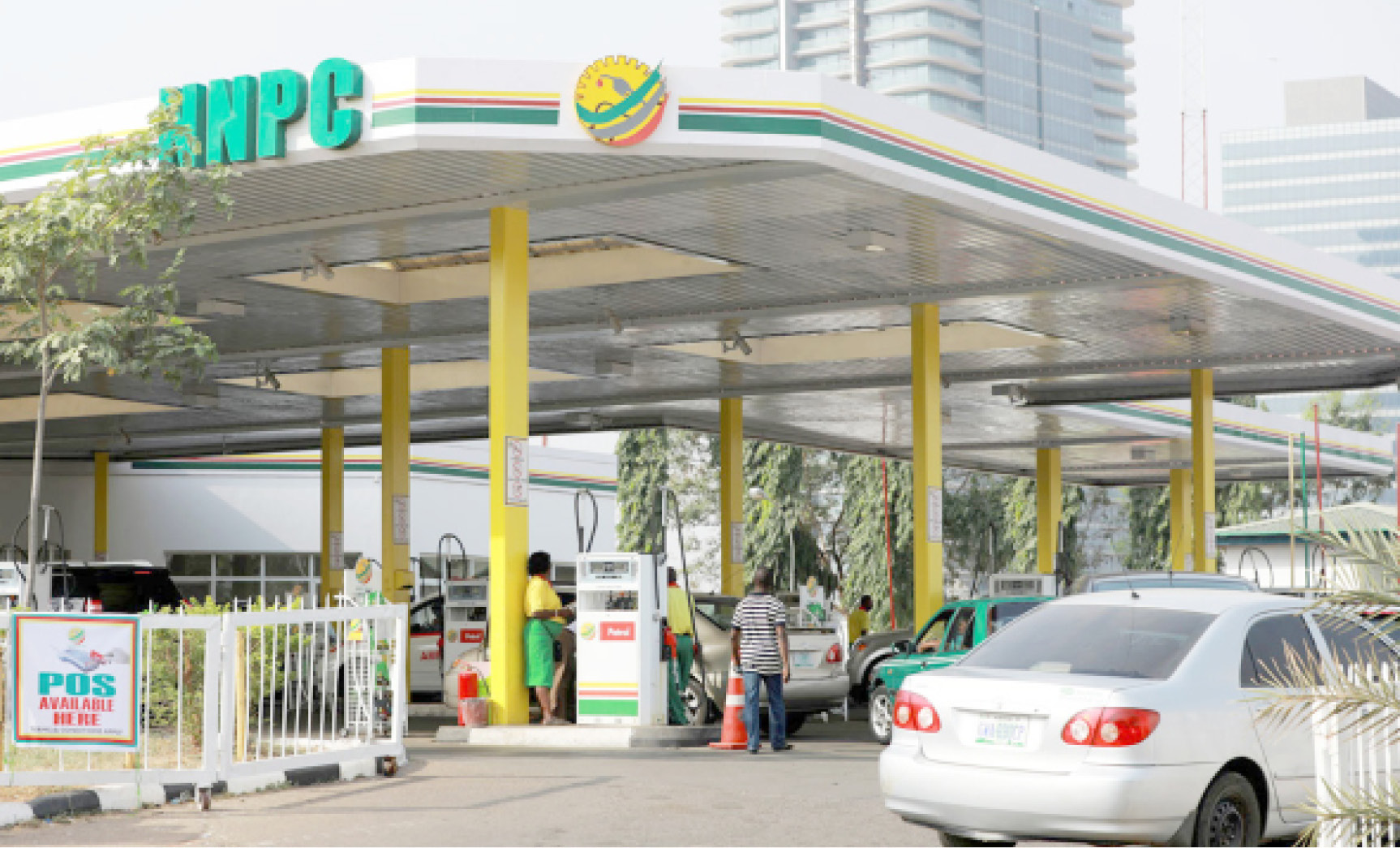Despite over N4 trillion subsidy for petrol in about 18 months, Nigerians are worried that they are not getting the product at the N195/l official rate.
In this piece, Daily Trust dissects the subsidy spent, the reality of the petrol market and the hurdles in getting the product at the retail outlets by customers.
Petrol subsidy estimated at over N6trn
The federal government might have spent over N6trn on petrol subsidy, higher than the N4trn it planned to spend from January, 2022, to June, 2023.
Merchants of Fake News Have Failed – Buni
ECOWAS raises concern over use of fake news ahead of Nigeria polls
By January, 2023, 12 months after, the Minister of Finance, Budget and National Planning, Zainab Ahmed, said more than 80 per cent of the N4trn earmarked had been spent. She also announced a gradual removal of the subsidy.
Not too long ago, NNPC retail stations and other major marketers raised their rates by over N6/litre, showing the first move on the gradual subsidy removal. From N184/l of petrol, the downstream giants shifted to N194/l (NNPC) and N195/l (major stations).
Further providing an update on the subsidy this month, the Group Chief Executive Officer (GCEO) of NNPC Ltd, Malam Mele Kyari, said about N400bn was spent to subsidise petrol every month, which is about N202/l.
In providing a breakdown of this spending, Kyari said the landing cost of importing petrol three days ago was N315/l, but that NNPC transferred to the marketers at N113/l.
He said, “We are transferring to each of them (marketers) at N113/l. That means there’s a difference of close to N202 for every litre of PMS we import into this country. In computation, N202 multiplied by 66.5 million litres (daily consumption), multiplied by 30 (days) will give you over N400bn of subsidy every month.”
More pains amid huge ‘subsidy’
This paper reports that given the N400bn current subsidy monthly budget, Nigeria through NNPC, would have spent N2.4trn by June when the subsidy regime will end. That would have increased the subsidy funding within 18 months to over N6trn as against the initially planned N4trn.
However, despite this huge spending, Nigerians still buy petrol at over N195/l. The situation worsened this year, with customers saying they bought petrol for up to N600/l in Edo, Delta and Sokoto states.
Daily Trust had reported recently that even NNPC retail outlets, which are public-funded enterprises, were alleged to prefer selling to hawkers rather than motorists. This claim was debunked by marketers and petroleum product transporters.
Mr John Odo, a consumer, said he bought petrol at N250/l at AA Rano in Ado, Nasarawa State, near Abuja, describing it as worrisome.
He said, “This thing worries genuine consumers who believe that taxpayers’ money has been used to subsidise the petrol but they cannot get the product at the official rate.”
For Garba Yusuf, the N195/l official rate is only seen at major fuel stations within Abuja City Centre and the capitals of some states. But across other areas, marketers sell at whatever rate they decide without interference.
He said, “In Kano, there are independent marketers that sell for N350/l, and we transporters bear this burden. What we have done is to simply pass it to the consumers.”
At a recent gathering of oil marketers in Abuja, they explained why stations sell at varying prices, which includes profiteering and high ex-depot prices for bulk purchase.
The Chairman of the Major Oil Marketers Association of Nigeria (MOMAN), Adetunji Oyebanji, said there were other costs that operators incurred outside the ex-depot price.
On his part, Chairperson of the Depot and Petroleum Products Marketers Association of Nigeria (DAPPMAN), Mrs Winifred Akpani, urged NNPC to only deliver products to depots (members) that would supply at the right price.
She said, “We have all determined to ensure that we can help where we can help,” adding that profiteering was causing many of the problems.
But the President of the Nigeria Union of Petroleum and Natural Gas Workers (NUPENG), Comrade Williams Akporeha, disagreed with the marketers, noting that marketers had no right to increase price because petrol was subsidised.
He said, “Our position at NUPENG is that any depot or filling station that sells above the price must have the wrath of Nigerians to face.”
Cash customers now ‘king’ at fuel stations
Another dimension to the fuel crisis which seems to have eased off in some quarters is the preference of retail stations for customers buying products with cash rather than through Point of Sale (PoS) amid the cash scarcity.
At AA Rano in Utako and Aso Drive near Mpape, it was observed that although there were queues for petrol that could last for 20 minutes, another problem for customers was when they eventually got to the dispensing point.
Mr Monday Bassey spent 25 minutes on the queue but was surprised at the dispensing point when the attendant told him to find a place within to park his car and join another queue to pay via POS.
He said, “That queue took another 30 minutes, depending on how fast the internet transaction process is. If successful, you will be given the duplicate receipts which you give the attendant to fuel your car.
“The problem is that those who have cash are treated as ‘kings’ and would be served even without going through the queue.
“For those that obtain the POS receipts, it is another tussle to get back to the queue at the dispensing point to be served while competing with the ‘cash customers’, mostly transporters.”
Some stations do not accept POS payment or transfer. At an MRS outlet at AYA, Asokoro, attendants only deal with customers who have cash as they decline transfer or POS transaction, several motorists lamented.
“I had no petrol and when they insisted on only accepting cash, I begged an attendant who insisted on collecting N1,000 extra if I would have to transfer the money to his personal account so he could dispense petrol. I had no choice,” said Samuel Kolade at the MRS AYA outlet.
This is despite a warning from the Nigerian Midstream and Downstream Petroleum Regulatory Authority (NMDPRA) directing “All retail outlets to ensure the free use of POS and bank transfer for the sale of petroleum products.”
But justifying the action of some outlets, Hauwa Mahmud, an official at an outlet, insisted on a cleared POS payment before service as the banks’ network had been poor, resulting in scores of declined transactions.
She said, “At this station, we have not flouted the NMDPRA directive. We are only saying we will have to be sure your transaction is successful before we can serve you. And while that is going on, you don’t expect us to refuse service to other customers that come with cash just because of a distorted queue.”
IMF, W/Bank, experts push for subsidy removal
As the concerns on petrol subsidy mount, the International Monetary Fund (IMF) has again asked Nigeria to remove subsidy on petrol latest by June, 2023, and increase social spending.
The fund, which stated this after its annual review of Nigeria’s economy and activities last month, said the directors “urged the authorities to deliver on their commitment to remove fuel subsidy by mid-2023, and to increase well-targeted social spending.”
In January, the Country Director for Nigeria, World Bank, Shubham Chaudhuri, said the taxpaying public could have confidence in the government if it spent resources in the right ways.
Chaudhuri said, “That is the quality of spending, whether you want to look at whether N6trn is spent on gasoline (petrol) subsidy or whether it is spent on healthcare facilities or schools or roads.”
So far, most Nigerians who buy petrol at over N195/l official rate do not believe that the N6trn petrol subsidy has been spent rightly.
The World Bank has often noted that the subsidy regime in Nigeria only subsidises the rich (with many cars) and the economy of neighbouring countries like Niger Republic (due to petrol smuggling).
“The majority of the poor don’t benefit as much from the subsidy compared to those who have many cars or who take fuel across the neighbouring states,” Chaudhuri stated when he visited Daily Trust head office in 2021.
According to an economist at SPM Professionals, Paul Alaje, the subsidy is part of what is raising Nigeria’s borrowing for consumption.
He said, “The question again is, should we continue to borrow to finance a budget that is not impactful on the economy? The answer is no.”
For Mr Tajudeen Audu, the CEO of TGS Nigeria, an audit and financial advisory firm, the recurring subsidy on petrol in the annual budget is frustrating.
He said, “Over the years, there have been warnings and advice to government over oil subsidy but they keep cropping up every year, especially issues of accountability, and revenue accruable to government but are still not being addressed by the relevant agency. In such a scenario, you as an auditor are frustrated at the end.”
A public analyst, Kunle Olubiyo, lauded NNPC for the rehabilitation of refineries which he believed would cut petrol subsidy.
He was, however, worried that the spending of over a trillion naira on the obsolete refineries just to get some of their capacities restored was costly as the fund can build a new refinery with modern technology.
He said, “Instead of deploying them, they need to be rested. You cannot compare the kind of technology being deployed by Dangote Refinery and Petrochemical Industry which are emerging 21st Century technologies with the ones meant to revive the refineries.”

 Join Daily Trust WhatsApp Community For Quick Access To News and Happenings Around You.
Join Daily Trust WhatsApp Community For Quick Access To News and Happenings Around You.


